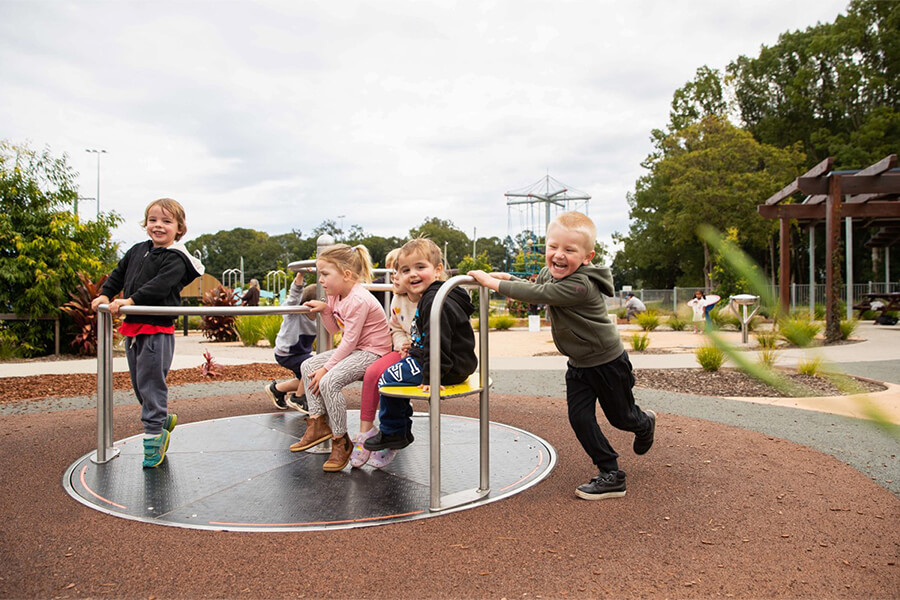What is an inclusive playspace?
An inclusive playspace invites people of all ages, abilities and cultures to come together to socialise and play.
Inclusive playspaces are easy to access, easy to move around in, provide a range of play types and challenges, and are equipped with appropriate facilities in a comfortable environment – allowing people to stay as long as they choose.
Expanding the space beyond traditional playspace boundaries helps ensure there are suitable supporting facilities to create an inclusive experience for all.
Who does it serve?
Children, youth and adults
Playspaces are utilised by a range of people, most notably children, adults, families and carers. Everyone Can Play helps ensure there are inclusive play opportunities for a broader range of users – differing in age, ability and culture.
Communities
Playspaces exist in varied communities. By improving the network of inclusive playspaces, Everyone Can Play seeks to provide the people of NSW with an opportunity to embrace the diversity within their community.
Playspace professionals
Playspaces are built through collaboration from councils, developers, designers, planners and manufacturers. Everyone Can Play provides the considerations and tools required to guide the planning, design and delivery processes.
Why are inclusive playspaces important?
Playspaces are a key community asset, bringing people together in a fun, welcoming and comfortable environment.
Play teaches children to socialise and interact, develops creativity and imagination, enhances emotional and cognitive development, and encourages risk-tasking and problem-solving. Besides the obvious benefits of movement, exercise and fitness, play provides the building blocks to children’s complete development – from balance, vision and hearing to tactile learning and sensory integration.
With 1.3 million NSW people living with a disability, an aged population increasingly involved in the care of grandchildren, and a highly multicultural society, our state’s playspaces should provide an inclusive experience for everyone.
Creating playspaces that allow people of all ages, abilities and cultural backgrounds to play together is essential for community harmony, building a society of tolerance and understanding is a value of inclusive playspaces in our community.

